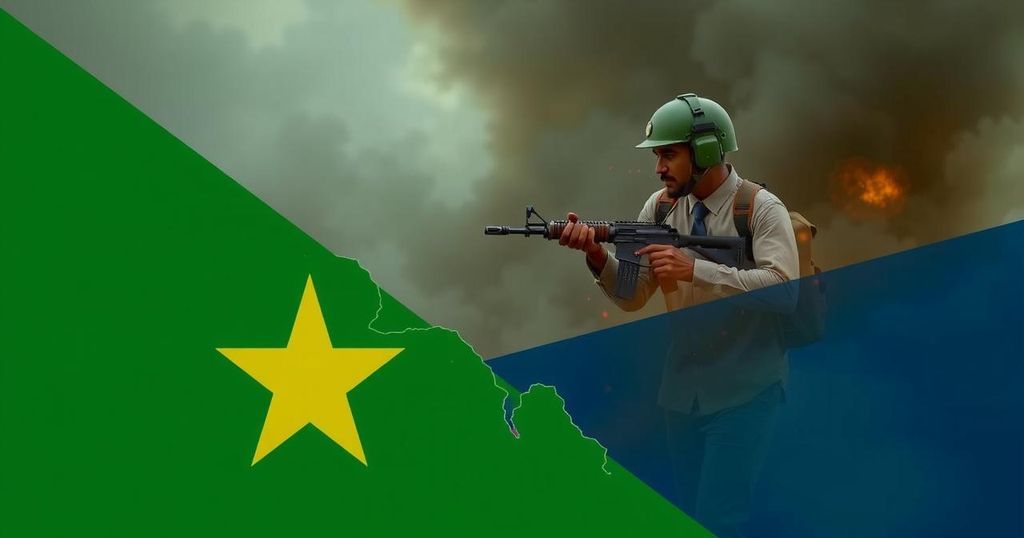On November 18, 2024, Russia vetoed a UN Security Council resolution proposing an immediate ceasefire in Sudan, where conflict has persisted since April 2023. The resolution, drafted by Britain and Sierra Leone, aimed to halt hostilities between rival generals and address the escalated humanitarian crisis. British officials condemned the veto, highlighting Russia’s obstructive role in international efforts to resolve the Sudan conflict and improve humanitarian conditions. The ongoing violence has resulted in tens of thousands of deaths and massive displacement across the nation.
In a significant move, Russia vetoed a United Nations Security Council resolution on November 18, 2024, that aimed to facilitate an immediate cessation of hostilities in Sudan. This conflict has been ongoing since April 2023 between rival military factions, specifically the Sudanese army led by General Abdel Fattah Al Burhan and the paramilitary Rapid Support Forces led by General Mohamed Hamdan Daglo. The resolution, which was primarily drafted by Britain and Sierra Leone, urged both parties to cease fighting and engage in discussions for a national ceasefire. British Foreign Secretary David Lammy criticized Russia’s veto, condemning it as a “disgrace” and asserted that it demonstrated Russia’s obstructionist stance amid significant humanitarian crises. He expressed outrage at the lack of attention paid to his remarks by Russia’s deputy UN ambassador, who was reportedly distracted by his phone at a pivotal moment.
The UN Security Council has been increasingly hampered in its capacity to collectively address global conflicts, with particular emphasis on divisions between permanent members such as Russia and the United States. Tensions have escalated further due to the U.S. decision to provide Ukraine with long-range missiles, and U.S. Ambassador Linda Thomas-Greenfield vocalized her discontent with Russia’s actions, which obstruct attempts to mitigate the dire humanitarian situation in Sudan. Russia, through its deputy UN ambassador, Dmitry Polyanskiy, denounced the resolution, alleging it contained a “post-colonial flavoring” and accused Britain of attempting to erase references to Sudan’s legitimate authorities from the document.
The ongoing conflict in Sudan has resulted in devastating consequences, with an estimated tens of thousands killed and over 11 million displaced, including more than 3 million who have fled the country. Current hostilities have heightened, as both factions remain steadfast in their belief of achieving military victory. Amidst this chaos, Rosemary DiCarlo of the UN underscored the alarming humanitarian implications, noting severe food shortages affecting approximately 26 million individuals, alongside reports of sexual violence by both warring parties. The resolution also entailed provisions to protect civilians and ensure unimpeded humanitarian access, but the potential impact of such a resolution is uncertain, particularly following the veto.
The conflict in Sudan began when General Abdel Fattah Al Burhan seized power during a coup in 2021, leading to increased instability and the emergence of the Rapid Support Forces (RSF), formerly allied with him but now engaged in armed conflict against the regular army. The UN Security Council had been considering various resolutions to address the humanitarian crisis evolving from the war, but geopolitical dynamics, particularly involving Russia and the United States, have hindered these efforts. The veto of the ceasefire resolution illustrates the ongoing struggle within the Council to achieve a unified response to such crises, reflecting the broader inability to navigate international disputes due to divergent national interests. The humanitarian situation has worsened dramatically, prompting urgent calls for alleviation and intervention.
The veto of the UN resolution by Russia starkly illustrates the complexities of international diplomacy, particularly in relation to the crisis in Sudan. With escalating violence and deepening humanitarian issues, the role of member states in the Security Council is more critical than ever. The failure to foster a consensus on a ceasefire underscores the challenges faced by the global community in addressing the pressing humanitarian needs and stabilizing the region. As the conflict continues to rage, the plight of the Sudanese people remains dire, underscoring the urgent necessity for a collaborative international response to end the hostilities and facilitate humanitarian relief.
Original Source: jordantimes.com






